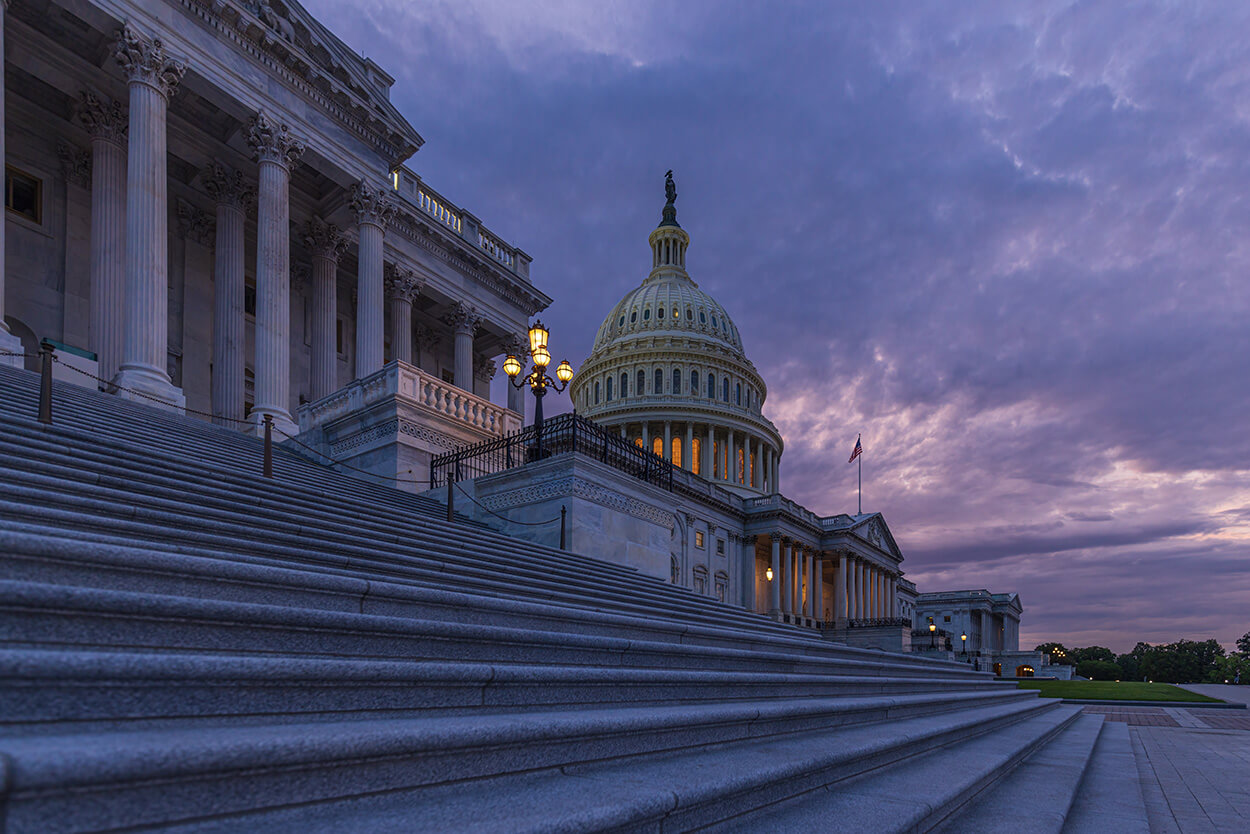
H.R. 1, officially titled the One Big Beautiful Bill Act, was signed into law by President Donald Trump on July 4, 2025. As the name suggests, the bill is broad in scope and touches multiple areas of tax policy, employment law, and government spending. Some of its headline provisions include significant tax deductions, targeted spending reductions, and adjustments to wage-related income. While many of the changes will phase in over time, others are retroactive and could require immediate action from nonprofit employers.
For nonprofits and tax-exempt organizations, the bill presents a mix of challenges and potential benefits. It includes changes to how certain compensation is taxed, adjustments to executive compensation rules, shifts in social service funding, and updates to credits related to childcare and dependent care. Nonprofits that rely on government support or volunteer labor—or that offer family-related benefits—should take time to understand the law’s provisions and consider how to respond strategically.
Below, we outline the key impacts of H.R. 1 on nonprofit organizations.
Federal Income Tax Deduction for Tips and Overtime
One of the most discussed provisions in the bill is the new federal income tax deduction for tips and overtime pay. This provision applies to individuals earning under $150,000 per year and allows them to deduct up to $25,000 of combined tip and overtime income from their federal taxable income.
This could affect nonprofits that employ hourly workers in sectors such as social services, healthcare, education, and food services. However, it’s important to understand that this is not a full tax exemption. These earnings are still subject to payroll taxes (like Social Security and Medicare) and any applicable state and local income taxes.
Additionally, the deduction applies only to overtime as defined by the Fair Labor Standards Act (FLSA)—typically hours worked beyond 40 in a single workweek, compensated at 1.5x the standard hourly rate. Overtime or premium pay resulting from union agreements, holiday work, or shift differentials may not qualify. Employers should also note that this provision is retroactive to January 1, 2025, and guidance is expected on how to handle adjustments for employees who have already paid taxes on qualifying income.
Executive Compensation Rules
The One Big Beautiful Bill expands the excise tax on executive compensation for nonprofit organizations. Under the updated law, nonprofits must now pay a 21% excise tax on annual compensation exceeding $1 million for any employee, not just the top five highest-paid employees, as was previously the case.
This change will primarily impact large nonprofits, especially those with high-level executives, medical professionals, or investment managers. It also applies to deferred compensation, meaning severance payments or post-employment arrangements may trigger this tax even after an employee has left the organization.
Organizations should review compensation arrangements and consider their potential tax exposure under these new rules.
Changes in Federal Spending on Social Services
H.R. 1 includes substantial reductions in federal spending, particularly affecting healthcare, nutrition, and housing assistance programs. The bill introduces new work requirements for Medicaid recipients and caps on federal contributions to Medicaid expansion, resulting in a projected 10.9 million Americans losing health insurance coverage over the next decade, according to the Congressional Budget Office (CBO).
For nonprofits that provide healthcare, family services, housing, or emergency assistance, this could mean greater demand for services with fewer government resources available. Organizations that rely on Medicaid funding for program delivery may need to reassess their budgets and seek alternative sources of support.
The bill also reduces discretionary spending in areas like environmental protection and workforce development, potentially impacting nonprofits that engage in green jobs training, energy efficiency programs, or employment services.
Dependent Care and Childcare-Related Credits
 The law expands the Child and Dependent Care Tax Credit (CDCTC), which can benefit nonprofit employers that offer childcare support as part of their employee benefit packages. The maximum amount of reimbursable expenses has increased, and more families may now qualify for the credit due to higher income thresholds and adjusted phase-outs.
The law expands the Child and Dependent Care Tax Credit (CDCTC), which can benefit nonprofit employers that offer childcare support as part of their employee benefit packages. The maximum amount of reimbursable expenses has increased, and more families may now qualify for the credit due to higher income thresholds and adjusted phase-outs.
While this does not create a new tax credit specifically for employers offering paid family leave, it does support nonprofits that want to help employees with childcare needs, either by offering stipends or by operating or subsidizing on-site childcare.
In states with strong family leave laws, employers that already offer generous leave policies may also benefit from continued federal deductions related to wage continuation programs. Nonprofits considering new or expanded childcare benefits should consult with a tax advisor to determine which credits they can claim under the updated law.
Charitable Giving Provisions
Unlike some earlier tax proposals, H.R. 1 does not introduce a universal charitable deduction or credit for non-itemizers. It also does not impose a “giving floor” below which charitable donations are no longer deductible. However, by maintaining current itemization thresholds and focusing on broader tax cuts, the law may still indirectly influence giving behavior.
Some philanthropic organizations have raised concerns that reductions in corporate tax liabilities and the lack of new giving incentives could lead to a slight decline in large-scale charitable contributions. Others argue that increased take-home pay for individuals could encourage more small-dollar donations.
At this time, the bill’s direct impact on charitable giving appears modest, but it’s worth monitoring donor behavior over the next fiscal year, especially among corporate sponsors and high-net-worth individuals.
Practical Takeaways for Nonprofits
While some provisions in H.R. 1 offer potential relief, such as tax deductions for workers and expanded childcare credits, others may create new administrative or financial burdens. In particular, nonprofits may face:
- Increased demand for services due to changes in Medicaid and safety net programs
- Potential liability under the expanded executive compensation excise tax
- Questions from staff about tax withholding changes on tips and overtime
- Pressure to revisit compensation and benefit structures to maximize deductions or credits
Proactive communication with staff, finance teams, and donors will be key in navigating these changes. Nonprofits should also monitor IRS guidance as implementation details continue to roll out.
Partnering to Navigate What’s Next
Navigating large legislative shifts can be complex, but you don’t have to go it alone. At 501(c) Services, we’ve spent decades helping nonprofits adjust to regulatory changes and manage the evolving landscape of employer responsibilities. Whether you need support understanding wage-based tax changes, planning for increased service demand, or reviewing compensation structures for compliance. We’re here to help.
If you’d like help identifying how the One Big Beautiful Bill Act affects your organization, please reach out to us. We’re ready to support your mission in any way we can.
About Us
For more than 40 years, 501(c) Services has been a leader in offering solutions for unemployment costs, claims management, and HR support to nonprofit organizations. Two of our most popular programs are the 501(c) Agencies Trust and 501(c) HR Services. We understand the importance of compliance and accuracy and are committed to providing our clients with customized plans that fit their needs.
Contact us today to see if your organization could benefit from our services.
Are you already working with us and need assistance with an HR or unemployment issue? Contact us here.
The information contained in this article is not a substitute for legal advice or counsel and has been pulled from multiple sources.
(Images by EyeEm and Krakenimages.com)




